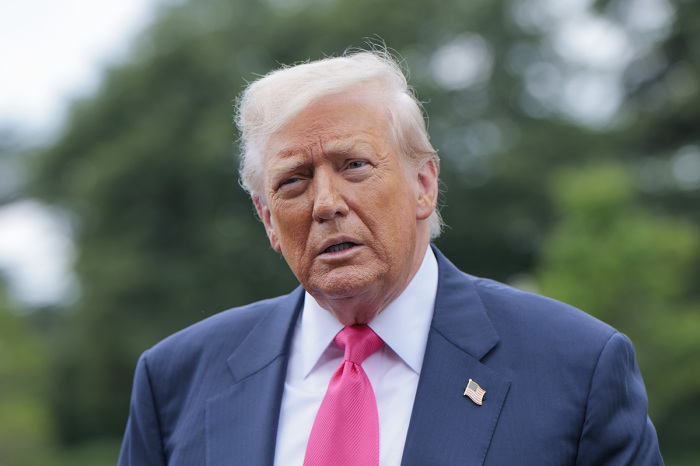
The Trump administration has unveiled its ambitious strategy aimed at cementing the United States as the global leader in artificial intelligence (AI), but some of even the president’s die-hard supporters aren’t on board.
Announced on July 24, “America’s AI Action Plan” focuses on accelerating innovation, bolstering infrastructure, and prioritizing national security to counter China’s aggressive AI advancements. By streamlining regulations, fast-tracking data center permits, and investing in workforce development, the administration seeks to unleash American ingenuity and maintain a competitive edge in the global AI race.
The plan has drawn both widespread industry support and sharp criticism, revealing divisions even among Trump’s traditional allies.
With several key initiatives aimed at largely reversing policies from the Biden administration, the AI Action Plan prioritizes deregulation by removing references to “misinformation,” “diversity, equity, and inclusion,” and “climate change” from federal AI standards, aiming to foster an environment of what it called unrestricted innovation. The plan also proposes withholding federal funding from states with “burdensome” AI regulations, a move reminiscent of a previously rejected 10-year moratorium on AI regulation.
It also emphasizes expanding data center infrastructure and energy production to meet AI’s computational demands, while promoting workforce training to equip American workers for an AI-driven economy. The administration positions these steps as critical to outpacing China, which has pursued a national AI strategy since 2017.
The plan has garnered significant support from the tech industry and business leaders, including Nvidia CEO Jensen Huang, who hailed it as an advantage for the U.S., stating, “America’s unique advantage that no country could possibly have is President Trump.”
Chevron Corporation Chairman and CEO Mike Wirth praised the plan’s focus on infrastructure, noting, “By streamlining permitting, investing in data centers, and unleashing American energy, the President is laying the foundation for a future where AI strengthens our economy, our national security, and our global leadership.”
Calling the proposal “a giant leap forward,” American Edge Project CEO Doug Kelly praised the plan’s role in countering China’s influence and filling gaps in the nation’s AI strategy. “This is our moonshot moment,” said Kelly. “Now is the time for the country to rally together behind a shared, national mission to win the AI race. The stakes could not be higher.”
Elon Musk’s venture xAI called the plan “a positive step toward removing regulatory barriers and enabling even faster innovation for the benefit of Americans and for humanity as a whole. We are pleased to see the White House prioritize AI innovation.”
However, the plan has faced sharp criticism, particularly from within Trump’s own political base. Rep. Marjorie Taylor Greene, R-Ga., expressed concerns about the strain data centers place on local resources and opposing penalties for states with AI regulations. “I’ve been in construction my entire life,” Greene wrote on X. “I can tell you firsthand, when you move dirt there is always an impact to the surrounding area. … Data centers are like black holes when it comes to water requirements. They consume massive amounts of water for cooling, literally millions of gallons per day.”
Conservative commentator Steve Bannon, a staunch Trump ally who helped the president’s first presidential campaign in 2016, mocked the plan’s technocratic leanings, criticizing AI “tech bros” who advocate for deregulation while doing business with China. “The tech bros scream about beating China, then lobby DC to keep sharing AI,” Bannon said. “Decouple now. Or stop pretending you care who wins.”
Some public policy groups in Virginia and other states are urging officials to hold off for at least a decade on any state-level AI regulations to allow Congress to take the lead.
The Virginia Institute for Public Policy, which bills itself as an “independent, nonpartisan, education and research organization committed to the goals of individual opportunity and economic growth,” gave its public endorsement on June 25 to “a proposed 10-year moratorium” on AI regulations so that Congress can “leverage its Commerce Clause 1 authority to establish federal pre-emption.”


















